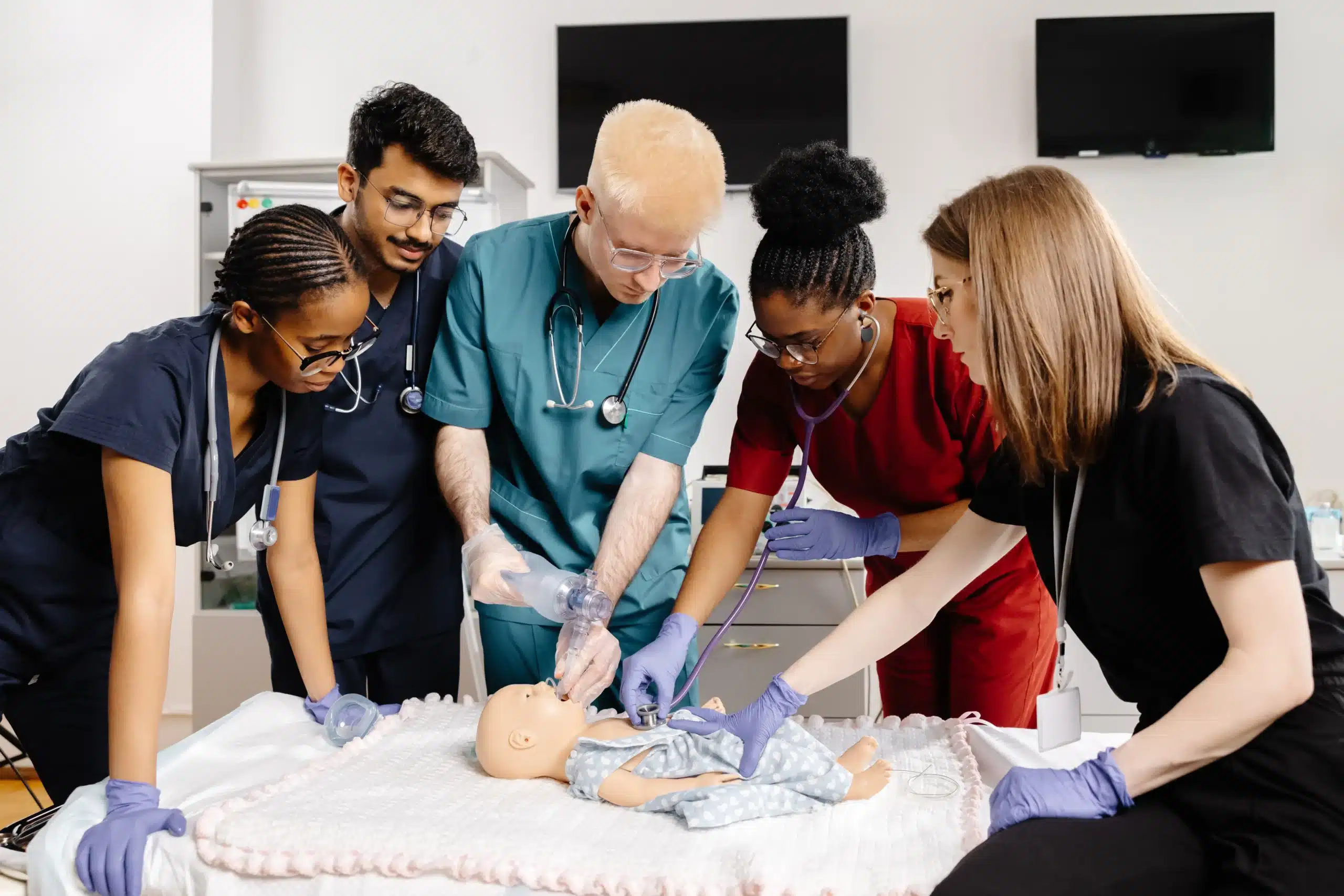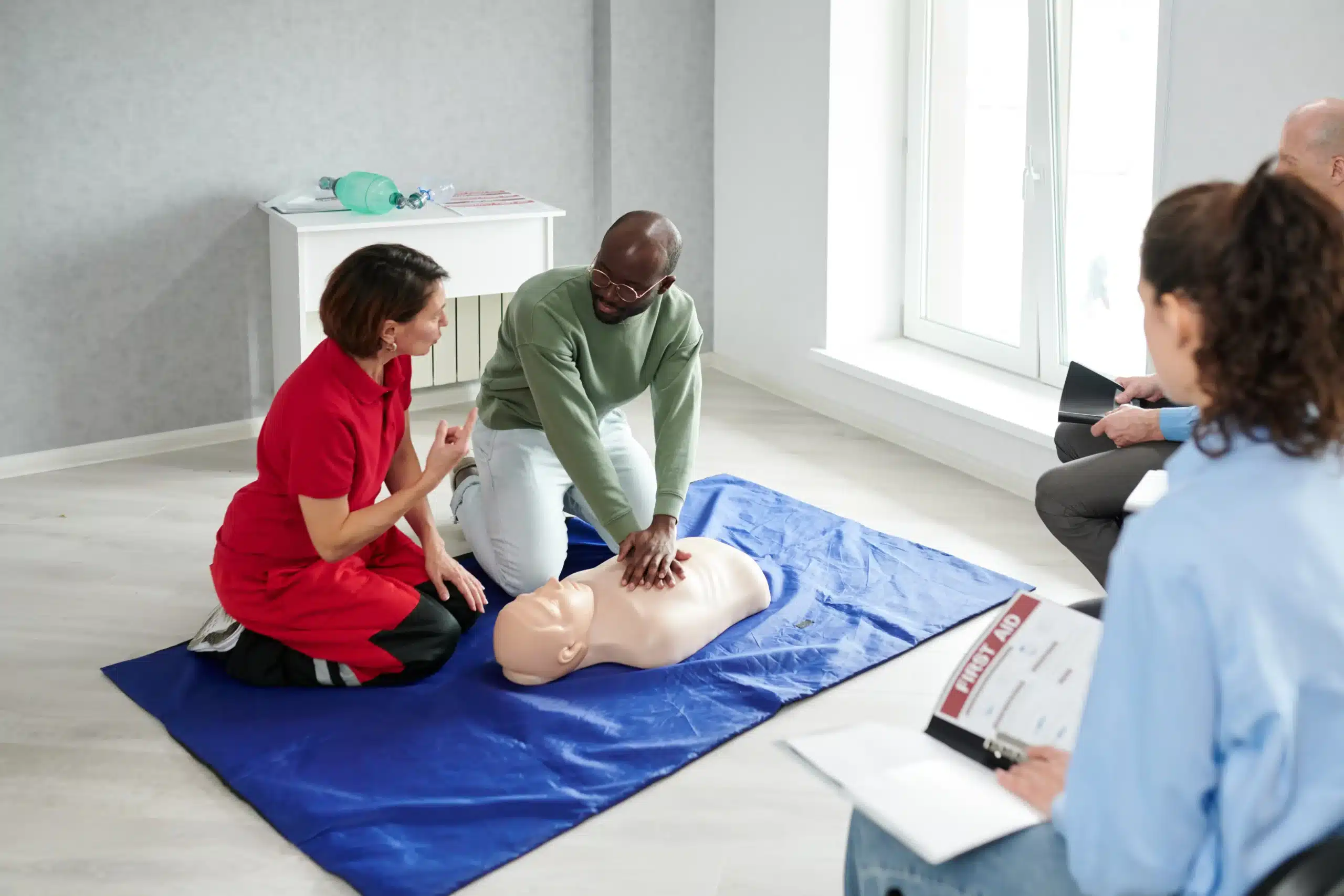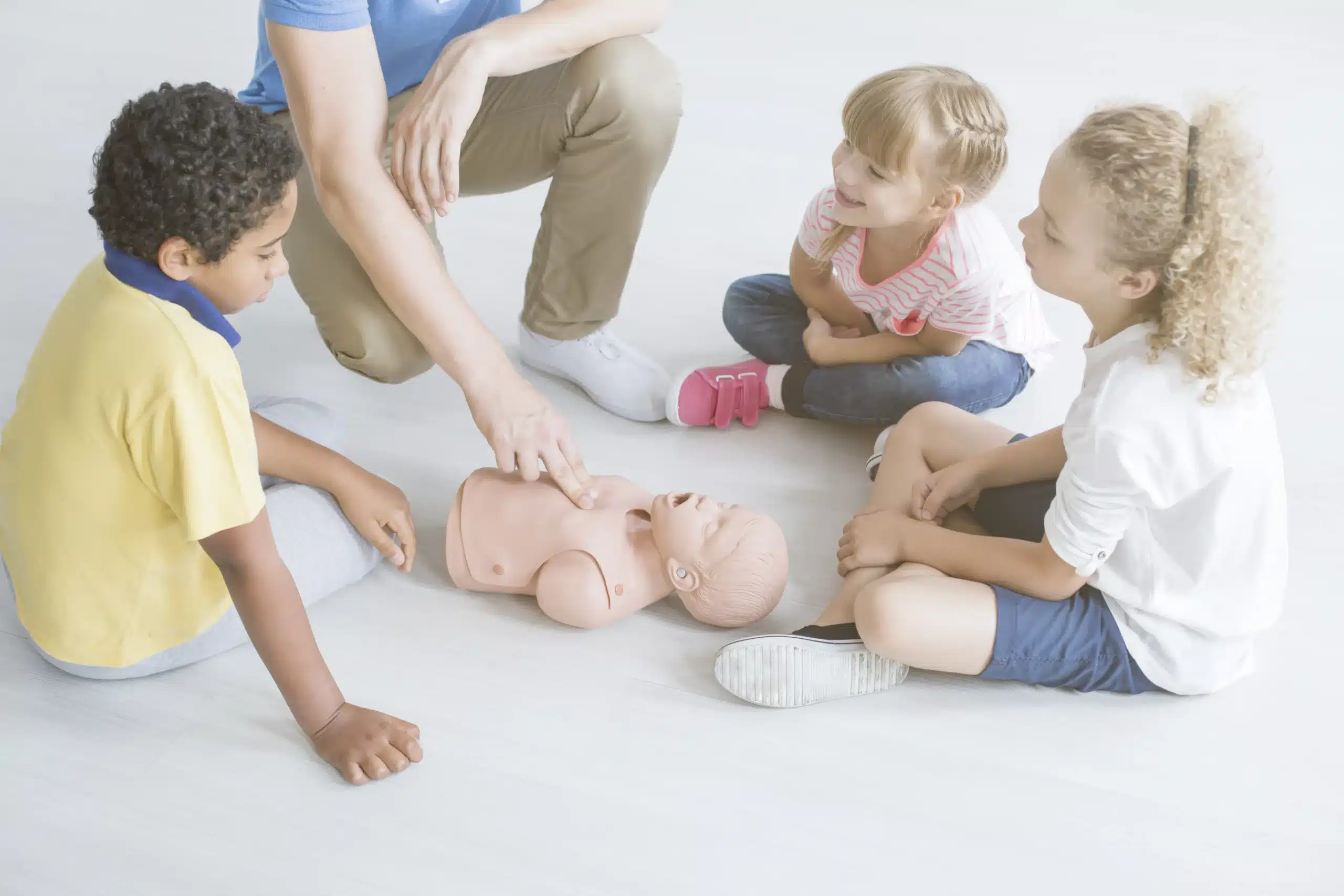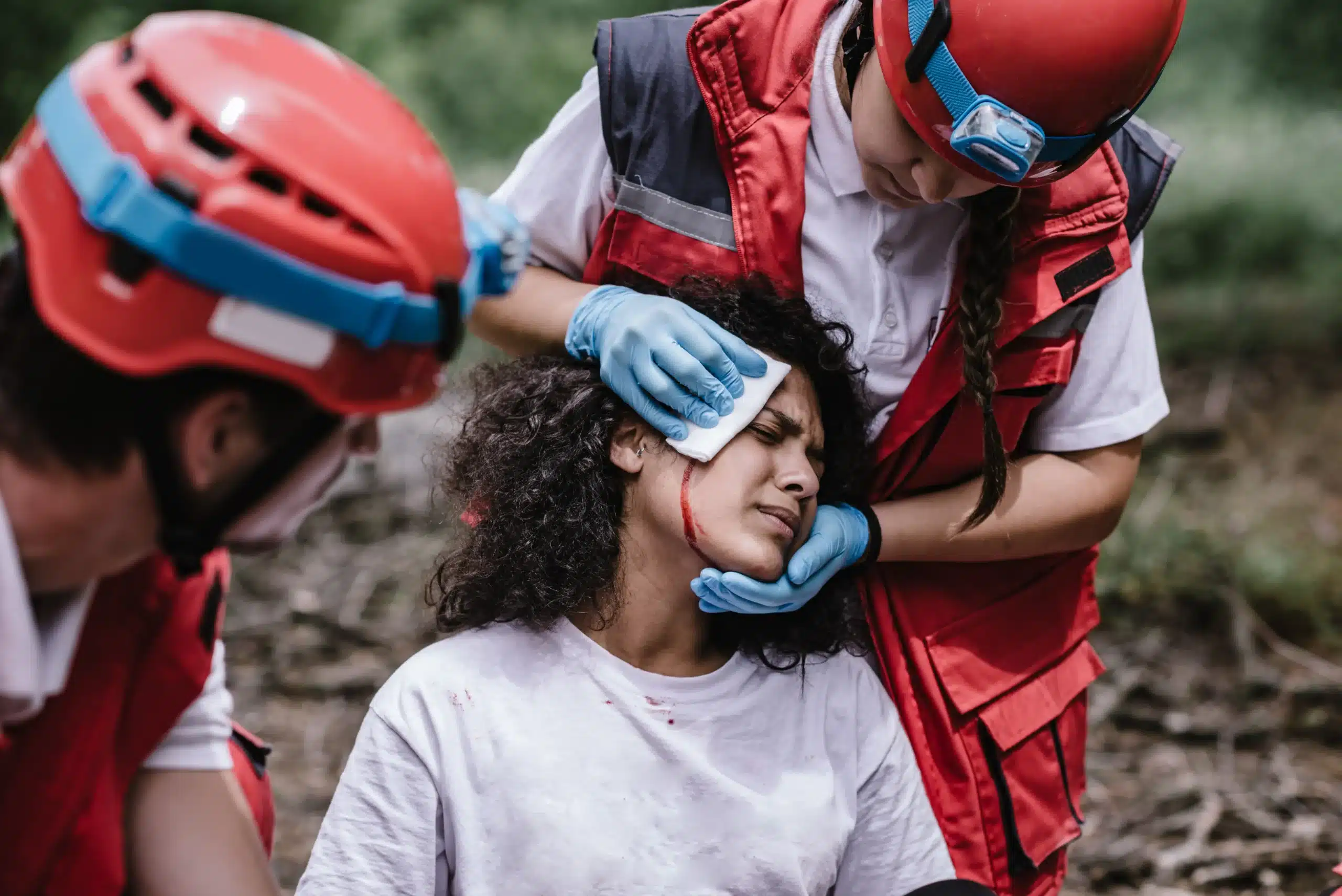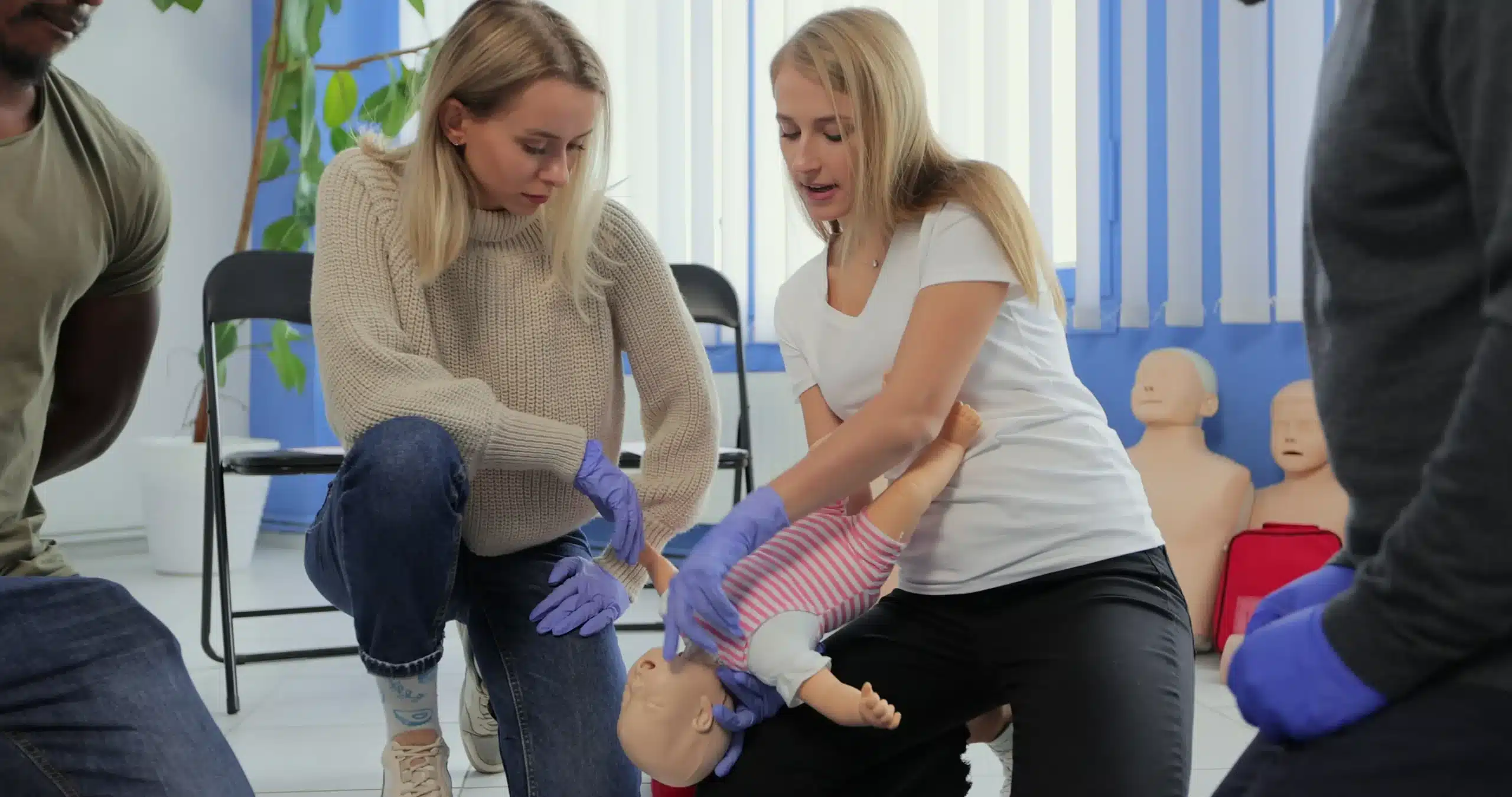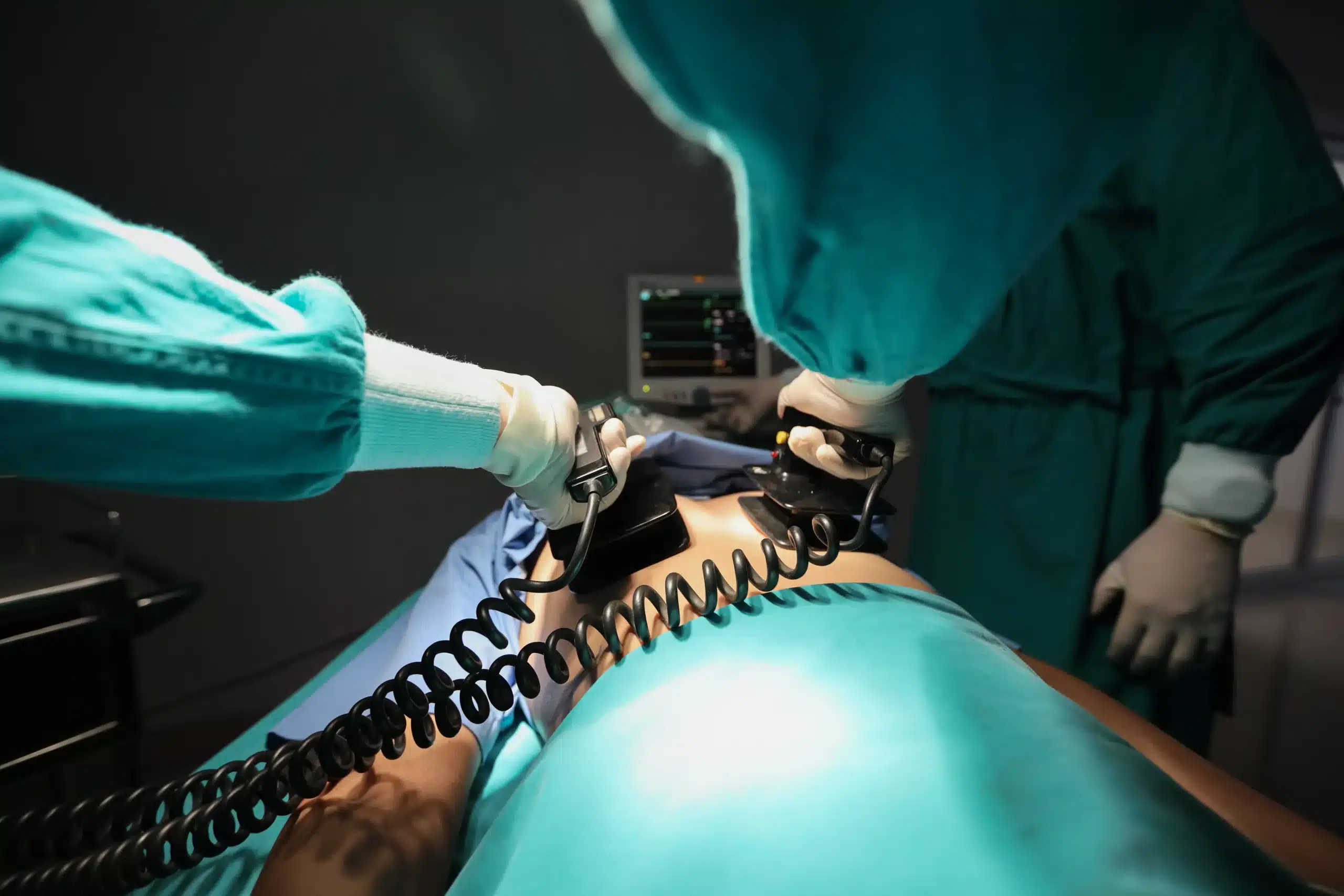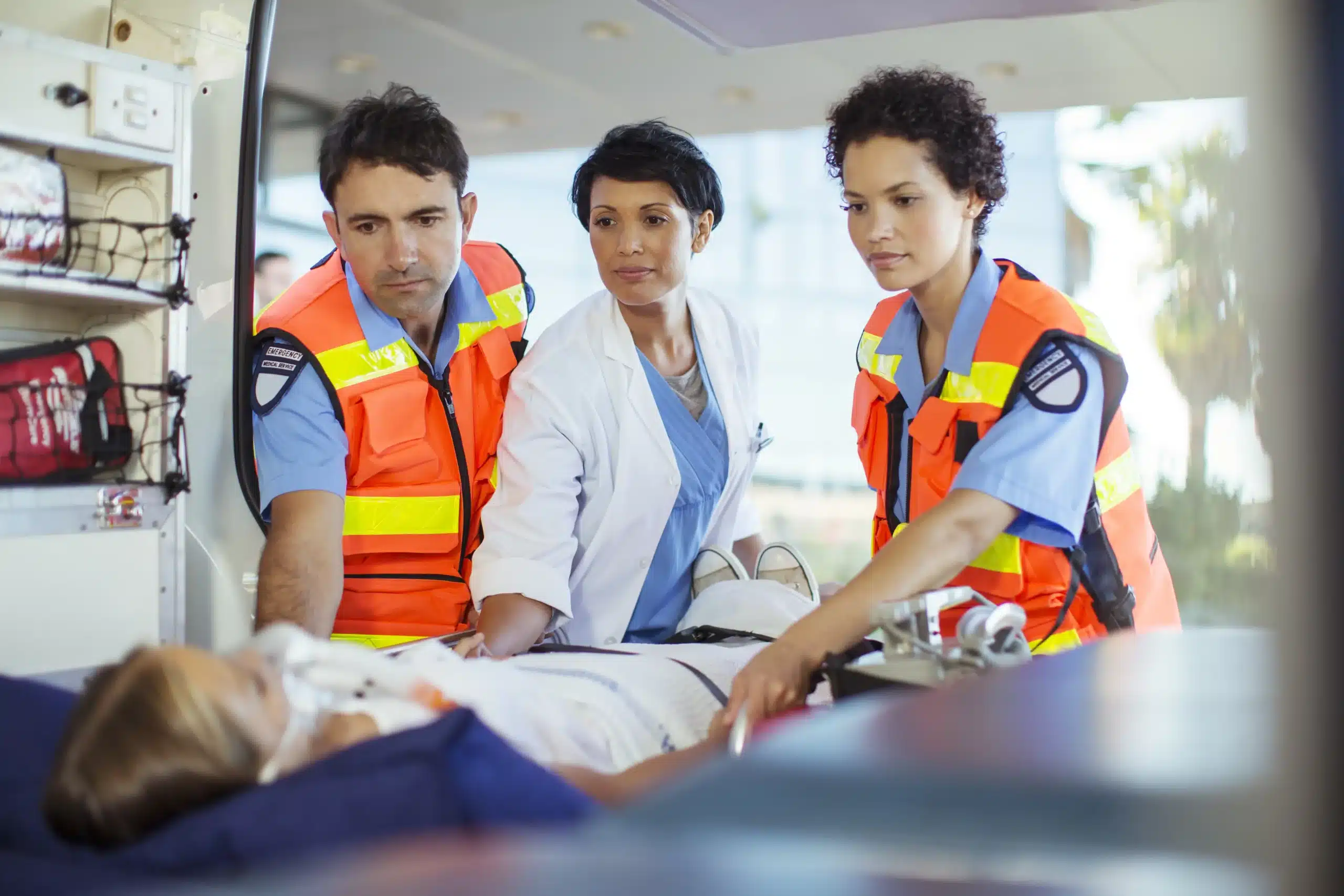Emergencies can happen anytime, anywhere. Are you ready to respond? CPR classes in Mountain House provide the skills and confidence to act quickly and effectively in medical situations. From basic CPR and AED use to specialized training for healthcare providers, there’s a course to suit every need. This guide explores the various CPR training options available in Mountain House, including free community courses, paid certification programs, and in-home training. We’ll also cover what happens in a typical CPR class, the costs involved, and why this training is so important for both personal and professional growth.
Key Takeaways
- Find the right CPR class in Mountain House for your needs: Free community courses offer basic life support training, while paid options provide more flexibility and specialized instruction, including in-home training.
- Look for qualified instructors and comprehensive course content: Choose classes taught by experienced, certified professionals that cover adult, child, and infant CPR, AED use, and choking relief. Hands-on practice is essential for building confidence.
- Stay current with your CPR skills: Renew your certification every two years and consider continuing education opportunities to reinforce your knowledge and ensure you’re prepared for any emergency.
What are CPR Classes in Mountain House?
CPR classes in Mountain House equip residents with the skills to respond to medical emergencies. These classes teach life-saving techniques, including CPR for adults, children, and infants, how to use an AED, and what to do when someone is choking. Learning CPR empowers you to assist family, friends, coworkers, or even strangers until professional help arrives. Several organizations offer CPR training in Mountain House, catering to different needs and schedules.
The French Camp McKinley Fire District and Mountain House Fire Department frequently offer free CPR courses through the American Heart Association. These courses cover core CPR skills and AED usage. This community-focused initiative aims to improve emergency preparedness and create a network of trained responders within Mountain House. For more information on CPR class availability and schedules, check their websites or community calendars.
If you need a more personalized approach or specialized training like pediatric CPR, private companies like In-Home CPR offer paid CPR classes in Mountain House. These classes bring the training to you, offering convenient in-home or on-site instruction seven days a week, including evenings. This flexibility accommodates busy schedules and allows for tailored training experiences. For those looking for additional options or courses in the surrounding area, our company offers a range of CPR and first-aid classes in nearby Livermore.
CPR Class Types
Choosing the right CPR class depends on your specific needs and goals. Whether you’re a healthcare professional, a concerned community member, or simply want to be prepared for emergencies, there’s a CPR class designed for you. Here in Mountain House, we offer a variety of options to fit every lifestyle. We even offer discount group classes for families, businesses, and community organizations.
BLS for Healthcare Providers
BLS for Healthcare Providers is the gold standard for healthcare professionals. This comprehensive course equips providers with the skills to respond to life-threatening emergencies, focusing on high-quality CPR for adults, children, and infants. It also covers AED use, bag-mask techniques, and team dynamics. The emphasis on early defibrillation and effective teamwork makes this course essential for anyone working in a healthcare setting. Learn more about our BLS certification.
Heartsaver CPR AED
Heartsaver CPR AED is a great option for those who aren’t healthcare professionals but still want to learn life-saving skills. This course covers adult, child, and infant CPR and teaches participants how to use an AED effectively. It’s ideal for community members, teachers, coaches, and anyone who wants to be prepared to respond to a cardiac emergency. Our convenient RQI program offers a quick and easy path to certification.
Family & Friends CPR
Family & Friends CPR provides a foundational understanding of CPR without requiring formal certification. This class focuses on the essential skills of CPR for adults, children, and infants, empowering participants to take immediate action in emergencies. It’s a valuable resource for parents, grandparents, babysitters, and anyone interested in learning basic CPR techniques. Contact us today to learn more about our CPR and first-aid courses.
Find CPR Training in Mountain House
Finding the right CPR class in Mountain House depends on your needs and preferences. Luckily, there are several convenient options, from free community courses to specialized in-home training.
Fire Departments
Your local fire department is a great resource for CPR training. The French Camp McKinley Fire District and Mountain House Fire Department offer a free American Heart Association Basic Life Support (CPR) course. This course covers essential life-saving skills, including CPR for adults, children, and infants, AED use, rescue breathing, and how to help someone who is choking. This free training is a fantastic way to gain these vital skills and contribute to a safer community.
Community Centers
Mountain House offers a range of CPR training options at various community centers. From free courses to professional certification programs, you can find a class that fits your schedule and learning style. This flexibility makes CPR certification accessible to everyone in Mountain House.
In-Home Training
If you prefer a more personalized learning experience or have a group that wants to train together, in-home training is a great option. Companies like In-Home CPR bring the training to your home or business in Mountain House. Their instructors, often EMTs, RNs, and paramedics, teach various courses, including CPR Essentials, CPR/AED, BLS for Healthcare Providers, and Pediatric First Aid/AED/CPR. This personalized approach can be especially helpful for those who prefer a comfortable and focused learning environment.
What Happens in a Mountain House CPR Class?
Curious about what to expect in a Mountain House CPR class? These courses equip you with the skills to respond confidently during emergencies. Let’s break down the typical class experience:
Course Content & Key Skills
Mountain House CPR classes cover core life-saving techniques. You’ll learn adult, child, and infant CPR, how to use an Automated External Defibrillator (AED), rescue breathing, and choking relief. The curriculum also often includes training in team resuscitation, preparing you to work effectively with others in a crisis. These skills empower you to provide immediate assistance in various emergency situations. For a comprehensive program, check out the CPR and First Aid certification courses available in your area.
Class Length & Structure
CPR classes in Mountain House offer flexible scheduling options. A standalone CPR/AED course typically runs for about 2.5 hours. If you want to add First Aid certification, expect the class to last between 4.5 and 5 hours. This allows you to choose the best fit for your time commitment and learning goals. Check with your chosen provider for specific course durations. You can often find convenient local options like CPR courses in Mountain House.
Hands-on Practice
Hands-on practice is at the heart of effective CPR training. Expect interactive sessions where you’ll practice the techniques on mannequins. Instructors encourage questions and present real-life scenarios to solidify your understanding. This practical approach builds your muscle memory and confidence, ensuring you’re not just learning the theory but truly prepared to act in a real emergency.
CPR Class Costs & Value
When choosing a CPR class, cost is naturally a factor. Luckily, Mountain House residents have several options, ranging from free community courses to paid certification programs. Understanding the differences will help you find the best fit for your needs and budget.
Free Community Courses
Both the French Camp McKinley Fire District and Mountain House Fire Department offer free American Heart Association Basic Life Support (BLS) CPR courses to community members. These free courses are a great way to gain foundational knowledge and contribute to community safety. Check with your local fire department or community center for upcoming class schedules.
Paid Certification
While free courses are valuable, paid CPR certification courses often offer more flexibility and specialized training. For example, providers like In-Home CPR bring the training to you, offering classes seven days a week, including evenings, at your home or business. This convenience is especially helpful for busy schedules. Paid courses also typically cover a broader range of topics, such as pediatric CPR, first aid, and the use of automated external defibrillators (AEDs). If you need certification for your job or prefer a more tailored learning experience, a paid course might be the better choice.
Comparing Options & Discounts
Ultimately, the best CPR class for you depends on your individual circumstances. Free community courses are a fantastic starting point for anyone interested in learning CPR. If you need a certification card for your job or require more in-depth training, consider a paid course. Many paid providers offer discounts for group classes, which can make the cost per person more affordable. Explore the different options available in Mountain House to find the right balance of cost, convenience, and comprehensive training.
Why CPR Training Matters
CPR training is about more than just acquiring a skill—it’s about empowering yourself to make a real difference and potentially save a life. Whether you live in Mountain House, Dublin, or Livermore, understanding CPR strengthens the network of people ready to respond to emergencies.
Community Safety
CPR is a vital skill, especially in a close-knit community. Quick action during a cardiac emergency can dramatically increase survival rates. By becoming CPR-certified, you’re equipped to provide immediate assistance while waiting for paramedics. This fast response can significantly improve outcomes, especially in areas where emergency response times might be longer.
Professional Development
For many professions, CPR certification is required. From healthcare providers and childcare professionals to fitness instructors, maintaining a current CPR certification is often a condition of employment. Certification is typically valid for two years and requires a refresher course to renew. This ongoing training keeps you up-to-date with the latest techniques and demonstrates your commitment to safety.
Local Emergency Response
CPR training strengthens local emergency response efforts. The more people trained in CPR, the greater the chance that someone nearby can help during a cardiac event. This improves response times and survival rates. Many local fire departments, like the French Camp McKinley Fire District, offer free CPR courses. Combined with other free and paid CPR training in Mountain House, it shows the community’s commitment to emergency preparedness. You can explore more about CPR training opportunities in our Mountain House certification guide.
Choose the Right CPR Class
Finding the right CPR class in Mountain House depends on a few factors. Take some time to consider your specific needs, the instructor’s qualifications, and the course content before signing up. This will ensure you get the most from your training.
Assess Your Needs
Before searching for “CPR classes near me,” think about why you’re taking the class. Are you required to get certified for your job? Do you want to be prepared for emergencies at home? Mountain House offers various CPR training options, from free community courses to paid professional certifications. Understanding your needs will help you choose the right fit for your schedule and learning style. If you need help deciding which class type is right for you, check out our post on CPR class types. Knowing whether you need basic life support certification or a more general family and friends course will narrow your search. Consider factors like class size and location, too. A smaller class might offer more personalized instruction.
Instructor Credentials
The quality of your CPR training depends heavily on the instructor. Look for classes taught by experienced, certified professionals. Ideally, your instructor should be an EMT, RN, or paramedic. These certifications indicate a high level of medical knowledge and practical experience. Safety Training Seminars instructors hold these credentials, ensuring you learn the most up-to-date, effective techniques. Don’t hesitate to ask about an instructor’s background and experience when researching different classes. A knowledgeable and engaging instructor can make a real difference in how well you learn and retain these critical skills.
Course Materials & Resources
CPR classes cover essential life-saving skills. A comprehensive course will teach you CPR for adults, children, and infants, how to use an AED, rescue breathing techniques, and how to help someone who is choking. More advanced courses, like ACLS (Advanced Cardiac Life Support) and PALS (Pediatric Advanced Life Support), build upon these basic skills. When choosing a class, make sure the curriculum aligns with your learning goals and includes hands-on practice. This will give you the confidence to use these skills in a real emergency. Ask about the course materials and any additional resources offered, like online refreshers or practice videos. These resources can reinforce what you learn in class and help you maintain your skills over time.
Prepare for Your CPR Class
Getting ready for your CPR class isn’t just about showing up—it’s about maximizing your learning experience. A little preparation beforehand can make a big difference in how much you absorb and how confident you feel performing these life-saving skills.
What to Bring
CPR classes often involve hands-on practice, so comfortable clothing is key. Think practical: something you can easily move in. Since many CPR courses, like those offered by Livermore CPR Classes, can take place at your location, double-check with your instructor about any specific equipment you might need to provide. They may have recommendations for the training space, too. Experienced instructors, often EMTs, paramedics, or registered nurses, bring real-world insights to the classroom. Being prepared helps you take full advantage of their expertise.
Pre-course Study
While you don’t need to be an expert before you arrive, familiarizing yourself with the basics can give you a head start. A quick online search can offer helpful overviews of core concepts like chest compressions, rescue breaths (formerly called rescue breathing), and how to use an AED. This pre-course prep can make the practical training even more effective. Knowing that most CPR certifications last between two and three years is also helpful for planning ahead for your renewal. And, if your job requires CPR certification, make sure you’re signing up for the right type of training, such as BLS (Basic Life Support) or ACLS (Advanced Cardiovascular Life Support). This will ensure you meet all workplace requirements.
Maintain Your CPR Certification
CPR certification from the American Heart Association is valid for two years. Staying current with your training is essential for providing effective assistance during emergencies. Keeping your skills sharp ensures you can confidently respond when needed. This section covers the renewal process and the importance of continuing education.
Renewal Process
Your CPR certification, much like a driver’s license, doesn’t last forever. It’s typically valid for two years, after which you’ll need a refresher course to renew it. This renewal process isn’t just a formality; it’s a crucial step in maintaining your skills and knowledge. Recertification courses cover any updates to CPR guidelines and techniques, ensuring you’re always prepared to deliver the most effective care. Check with your certifying organization or a local training provider like Safety Training Seminars in Livermore for specific renewal requirements and course availability.
Continuing Education
Beyond the required renewal process, ongoing education in CPR is invaluable. Regular practice and continuing education courses help solidify your skills and keep them fresh in your mind. This consistent reinforcement is especially important because CPR techniques can evolve, and staying up-to-date is crucial for providing the best possible care. Maintaining your CPR certification demonstrates your commitment to providing high-quality care and increases the likelihood of positive outcomes during emergencies. Regular training reinforces best practices and keeps your skills sharp. Remember, many cardiac arrests occur outside of hospitals, and bystander CPR significantly improves the chances of survival.
Related Articles
- CPR Courses in Mountain House: Your Certification Guide – Livermore CPR Classes
- Pediatric CPR & First-Aid Training in Mountain House – Livermore CPR Classes
- ACLS Courses in Mountain House: Your Complete Guide – Livermore CPR Classes
- BLS Training in Mountain House: Your Complete Guide – Livermore CPR Classes
- American Heart Association in Mountain House: Your Guide – Livermore CPR Classes
Frequently Asked Questions
What types of CPR classes are available in Mountain House? Mountain House offers various CPR classes, including free community-based courses through the local fire department and paid options through private companies like In-Home CPR and Safety Training Seminars in nearby Livermore. These courses range from basic CPR and AED training to more specialized certifications like BLS for Healthcare Providers.
How long does it take to get CPR certified? The time commitment for CPR certification varies depending on the course type. A basic CPR/AED course usually takes around 2.5 hours. Adding First Aid certification typically extends the class to 4.5-5 hours. Check with your chosen training provider for their specific course durations.
How much does a CPR class cost? The cost of a CPR class depends on the provider and the type of course. Free CPR courses are often available through local fire departments and community centers. Paid certification courses through private companies typically range in price, but often offer more flexible scheduling and specialized training options.
How often do I need to renew my CPR certification? CPR certifications, particularly those from the American Heart Association, are typically valid for two years. After two years, you’ll need to take a recertification course to keep your skills current and maintain your certification status.
Why is it important to learn CPR? Learning CPR empowers you to respond effectively during medical emergencies. It equips you with the skills to provide immediate assistance to someone experiencing cardiac arrest or other life-threatening events, potentially increasing their chances of survival until professional help arrives. It also strengthens community preparedness and can be a valuable asset for professional development.
